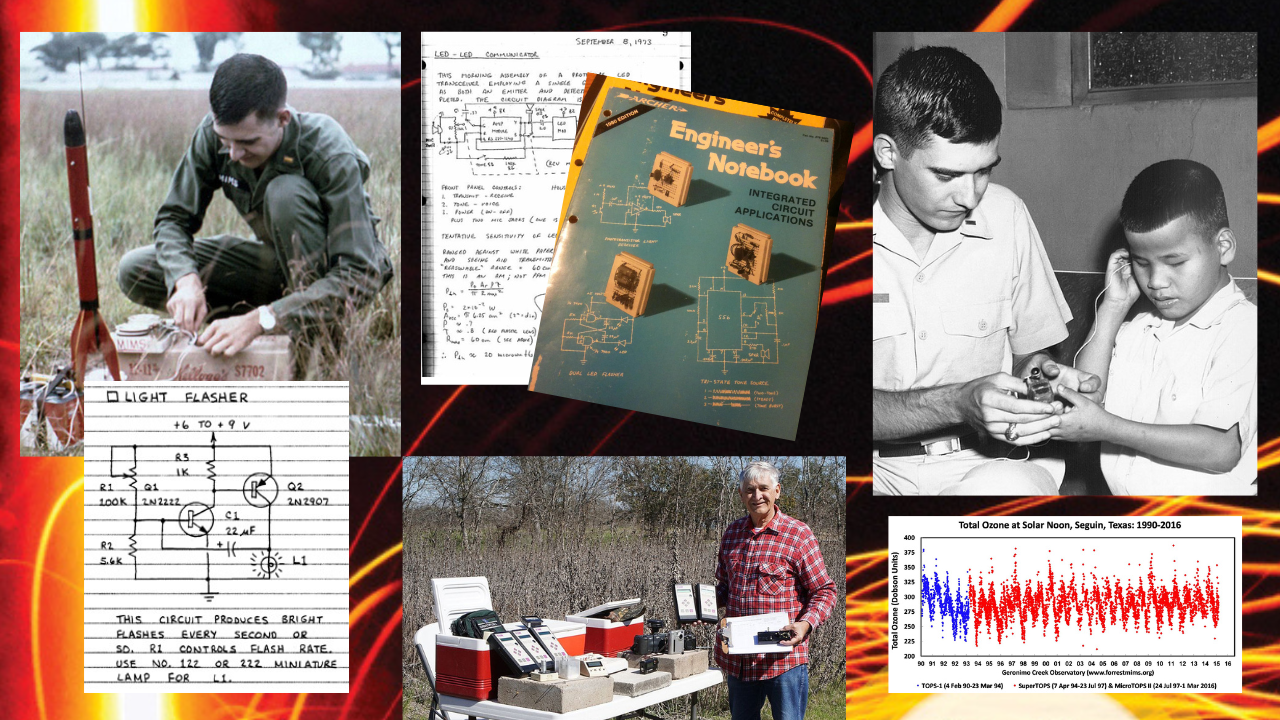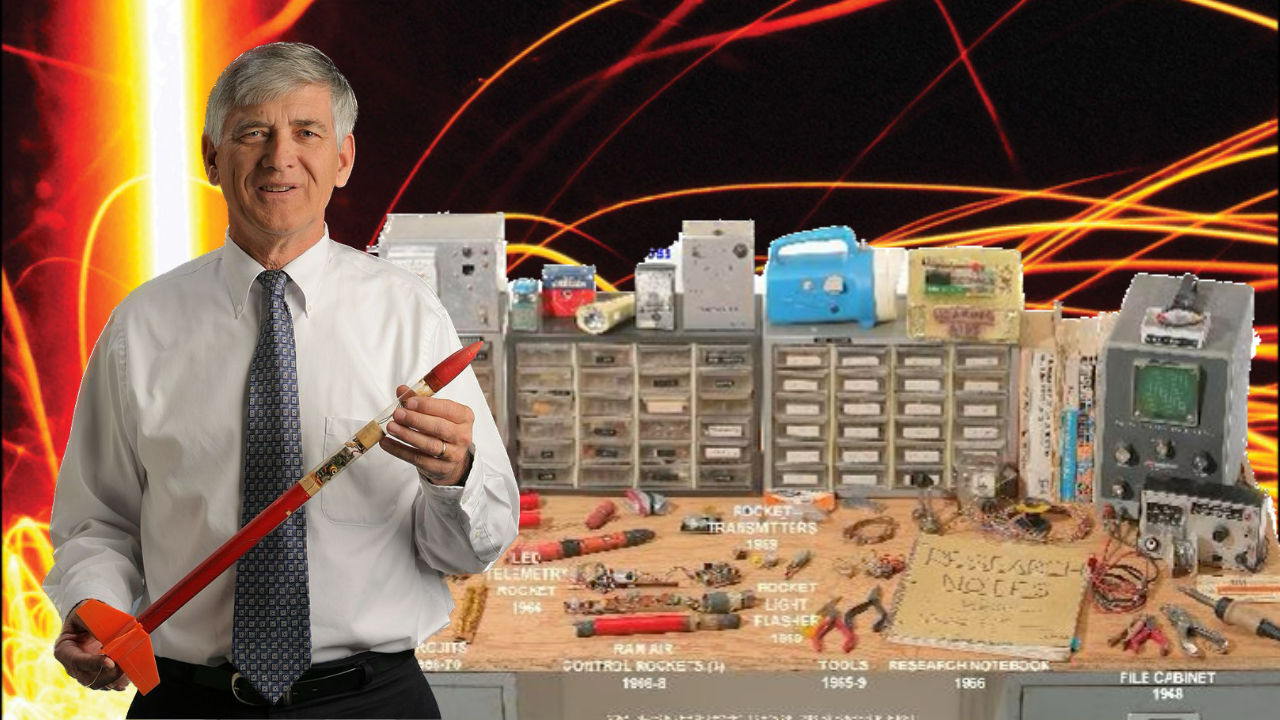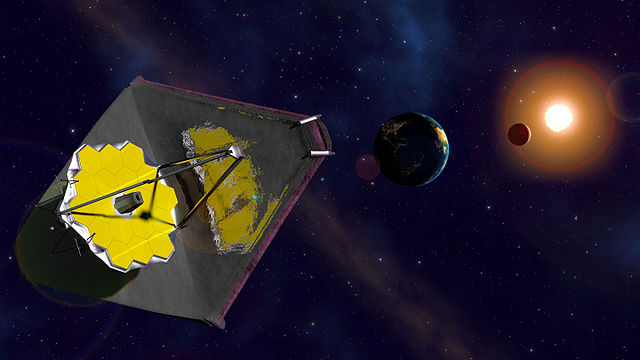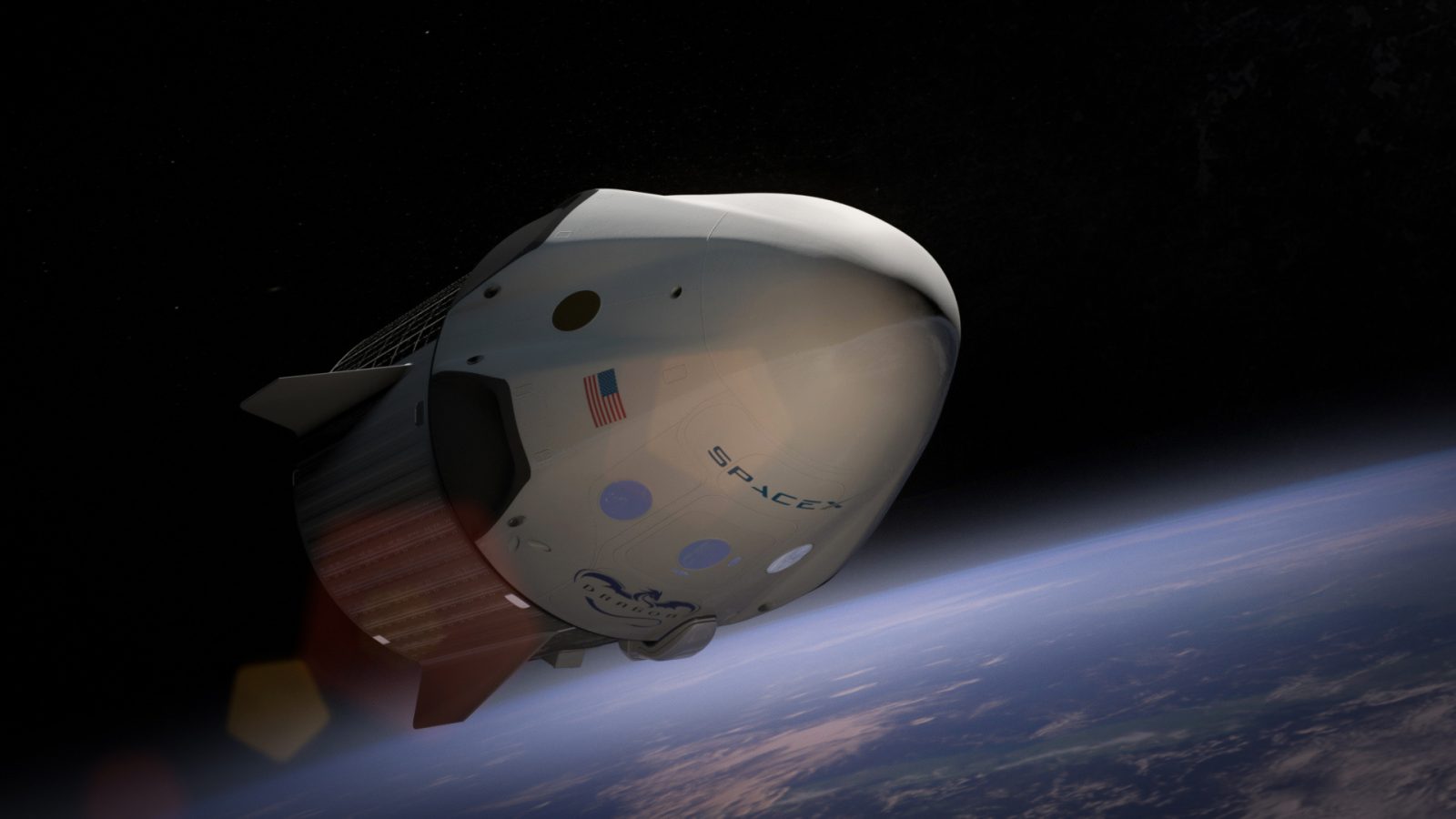


My Adventures As an Amateur Scientist

Forrest Mims: The Making of a Maverick Scientist

Bijan Nemati on What the James Webb Telescope May Discover
Today’s ID the Future explores with physicist and space telescope expert Bijan Nemati the amazing discoveries that may await us when the singularly powerful James Webb space telescope goes on line in summer 2022. Nemati and host Jay Richards, co-author of The Privileged Planet, discuss the telescope’s ability to see far deeper into space than any previous telescope, and further into the past. If all goes well it will be able to see so far into the past, Nemati says, that we will get glimpses of the universe close to when galaxies were first forming, not long after the Big Bang. These glimpses may confirm our most current ideas of early cosmic history and galaxy formation, or turn them on their head. Nemati also explains how the new space telescope, already launched and arrived at its orbital point in space, will provide us potentially exciting new information about extrasolar planets. What are the telescope’s strengths and weaknesses, and are there any other telescopes in the works to complement the Webb telescope? As a matter of fact, Nemati himself is working on one of those future telescopes, and he gives Richards and podcast listeners a sneak peek at the project.

A Webb Telescope Tour with Space Telescope Expert Bijan Nemati
On today’s ID the Future, physicist Bijan Nemati, an expert in advanced astronomical instruments, discusses the new James Webb space telescope with host Jay Richards. The NASA telescope has been successfully launched into space and has reached its destination, known as the Lagrange Point 2, roughly a million miles from Earth. If all goes well with the extremely delicate multi-phase deployment, the Webb telescope will go online in late spring or early summer 2022 and begin sending back stunning images. In this first of two episodes, Nemati describes the remaining steps in the telescope’s deployment, some of the extraordinary technology involved, and the telescope’s amazing powers, including its ability to see into the far infrared regions of the electromagnetic spectrum, and deeper into space by far than any telescope before. For more from Center for Science and Culture senior fellows Nemati and Richards on astronomy, physics, and the evidence for intelligent design in the fine tuning of Earth and the cosmos for life and discovery, check out The Privileged Planet documentary, available here. (Image credit Kevin Gill, https://commons.wikimedia.org/wiki/File:James_Webb_Space_Telescope_(14742910940).jpg)

New Book Spotlights High Tech Animal Navigation
Today’s ID the Future spotlights the new book Animal Algorithms: Evolution and the Mysterious Origin of Ingenious Instincts. The author, Eric Cassell, joins host and Baylor computer engineering professor Robert J. Marks to discuss the groundbreaking book and, in particular, the chapters on some of the animal kingdom’s most stunning navigators—the arctic tern, homing pigeons, the monarch butterfly, and the desert ant, among others. Cassell has degrees in biology and engineering, and he draws on these and his decades of professional expertise in aircraft navigation systems to show that these creatures instinctively employ navigational technologies that humans have only recently mastered. According to Cassell, their skills are driven by sophisticated algorithms embedded in their brains. But what created these algorithms in the first place? He argues that mindless evolution is a poor candidate for the job. A better candidate, he suggests, is the same cause that builds sophisticated algorithms today—intelligent agency. Tune in as Cassell and Marks touch on everything from magnetic, sun, and celestial navigation to chemotaxis, dead reckoning, spherical geometry, great circle routes, neural networks, and … Viking sun stones. Read the enthusiastic endorsements, and pick up your copy of the book here.

Walter Bradley on the Newly Expanded Mystery of Life’s Origin
On this episode of ID the Future, Robert J. Marks interviews Walter Bradley, co-author of the seminal 1984 ID book The Mystery of Life’s Origin, now being released in a revised and expanded edition with updates from multiple contributors discussing the progress (or lack of it) in origins science in the 35 years since the book’s original publication. In this first of two podcasts, Bradley discusses the history of the attempts to explain life’s origin naturalistically, and how the three authors of the 1984 book came together to shake up the world of origin-of-life science.

Bijan Nemati on Finding Another Earth
On this episode of ID the Future, Bijan Nemati, formerly of CalTech’s Jet Propulsion Laboratory and now at the University of Alabama, Huntsville, tells what science is learning about how hard it is to find a planet like Earth. Anywhere. The more we learn about the conditions necessary for a planet to host life, the more we see we may need to search at least tens of thousands of Milky Way galaxies to expect to find another one — at least if it all depends on blind luck. This talk is part of bonus material included with the new, thought-provoking series Science Uprising.

NASA’s Jet Propulsion Lab Goes to Trial in Anti-ID Discrimination Case
On this episode of ID The Future, host David Boze interviews Joshua Youngkin, a legal affairs analyst at the Discovery Institute, about new developments in the case of David Coppedge, a former employee of NASA’s Jet Propulsion Lab, who was demoted and later fired for discussing intelligent design. Youngkin provides background on Coppedge’s tenure at JPL and gives insight into the legal basis for the discrimination lawsuit that will now go before a jury trial. “This is a case that comes under the Fair Employment and Housing Act. It bars employers from discriminating against employees on the basis of their viewpoint…” Make your voice heard! Visit our David Coppedge Case Information page to get more info, the latest updates, and to send your own message to NASA’s Jet Propulsion Lab.

Free Speech Under Attack at NASA’s Jet Propulsion Laboratory
What happens when an employer tries to punish an employee for their pro-intelligent design views? On this episode of ID the Future, Casey Luskin interviews William J. Becker, Jr., a first amendment attorney in California. Mr. Becker is the attorney for David Coppedge who filed suit this week against NASA’s Jet Propulsion Laboratory (JPL). The lawsuit claims that supervisors at JPL illegally harassed and demoted Mr. Coppedge, a high-level computer system administrator and Team Lead on the Cassini Mission to Saturn project, for expressing support of intelligent design to co-workers. Listen in and learn about the religious discrimination, harassment, retaliation, and wrongful demotion David Coppedge suffered, and stay tuned to Evolution News & Views for continuing updates on this story.
Read More ›